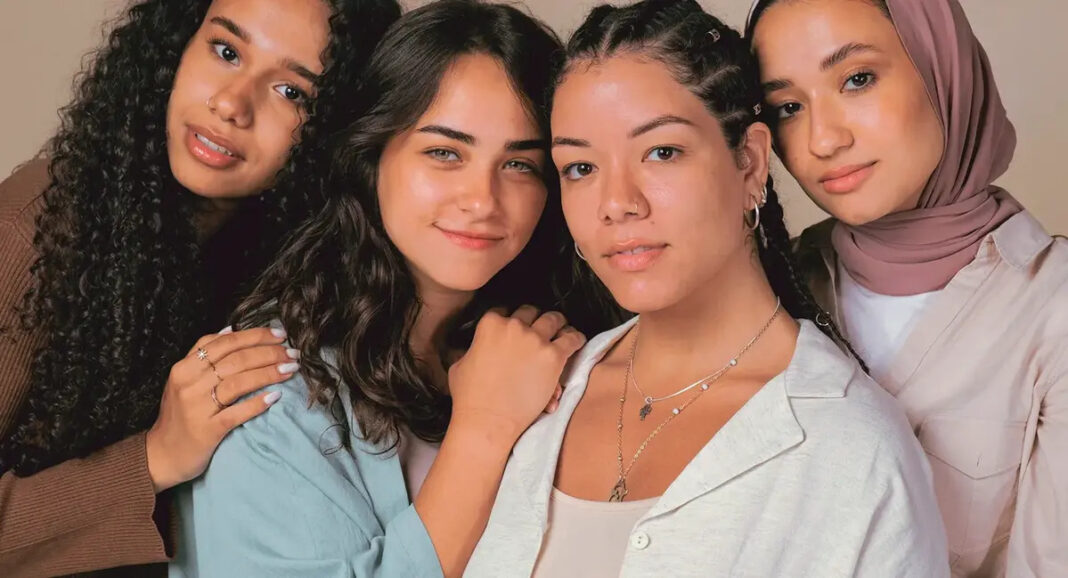The first phrase many Egyptian girls hear when they get their period is ‘mabrouk, kibirti’ which is translated to ‘congratulations, you are a woman.’ Yet, beneath the surface of this moment lies a gap in reproductive knowledge, one that keeps many women from truly understanding, let alone connecting with, their bodies.
While pregnancy is often seen as one of the most intense experiences a woman can endure, a woman’s body is far more intricate than pregnancy alone. Beyond pregnancy, women navigate a wide spectrum of reproductive health issues that are often overlooked or misunderstood. Conditions like ovarian cysts, endometriosis, polycystic ovary syndrome (PCOS), and fibroids can be debilitating, yet they frequently go undiagnosed or dismissed as ‘normal’ pain.
Recent studies highlight a significant gap in reproductive health knowledge among women in Egypt. A 2013 survey of 220 female university students revealed widespread confusion or a complete lack of awareness about reproductive health and related care access. More than a decade later, a 2024 study in Ismailia found that even married women face limited understanding of their sexual and reproductive health, compounded by poor access to adequate services and reliable information.
Both studies point to two urgent needs: first, equipping women with accurate information about their bodies; and second, creating media awareness and safe, judgment-free spaces where they can ask questions and seek support without fear or shame.
To meet these needs, Motherbeing, founded by Egyptian doula and sex educator Nour Emam, recently launched Daleela, an artificial intelligence (AI) powered health assistant application designed to support the often-overlooked sexual and reproductive needs of Arabic-speaking women.
While AI has become a buzzword across industries like climate and business, its potential to improve women’s access to reproductive health information remains largely unexplored, especially for those facing social stigma, financial limitations, or a lack of nearby services.
The role of AI in sexual and reproductive health
While it might seem simple to use AI to close information gaps around sexual and reproductive health, the solution goes far beyond deploying a basic chatbot that answers generic questions.
Sexual and reproductive health is deeply personal and culturally nuanced. What works for one person may not apply to another, which is why effective support in this space demands sensitivity, context, and tailored guidance.
The World Health Organization’s (WHO) 2024 technical brief underscores both the promise and the pitfalls of AI in this field. It acknowledges that while tools like chatbots and virtual assistants can expand access to information, they also carry the risk of bias, especially when trained on non-representative data.
This is why Daleela is built to reflect cultural sensitivities, ensuring the AI health assistant communicates with Egyptian women in a way that resonates, with language, context, and care that feels truly their own.
“For many women, Daleela isn’t just a chatbot. It’s a friend, a sister, even a mom in their pocket,” Yousef Elsammaa, Co-founder and CEO of Daleela, tells Egyptian Streets. “It speaks to them in their own dialect, with culturally relevant information, and lets them ask the questions they might be too afraid or embarrassed to ask anywhere else.”
With over 650,000 questions answered in just eight months and more than 2,000 interactions daily, the AI assistant has been reshaping the landscape of reproductive health in Egypt. Daleela provides instant, evidence-based answers on everything from menstrual health and birth control to intimate questions about sex and relationships. It is also particularly vital for young women preparing for marriage, who often lack access to trusted guidance.
“The majority of questions we receive are related to sexual health, especially from women who are about to get married or are newly married,” Elsammaa explains. “There’s so much fear and confusion due to a lack of proper education. Many women just need answers to basic questions.”
Beyond information, the AI health assistant also offers a direct line to care. “If a user’s question suggests a potential medical condition, Daleela refers her to a doctor within the app. The AI even helps intake medical history and symptoms to prepare detailed reports for doctors, making consultations faster and more efficient,” Elsammaa adds.
This is particularly critical in Egypt’s context, where privacy is usually a top concern for many women. “All chats and consultations are encrypted. We’ve built our tech with global privacy standards to ensure complete data protection,” he emphasizes.
“Even internally, we don’t have access to users’ identities. Only doctors can view a patient’s information during a consultation.”
While there are many AI chatbots found online that people can easily access, what sets Daleela apart is how it tailors its AI to meet the local context.
“We use AI in two core ways,” Elsammaa explains. “First, our chat assistant provides thousands of accurate responses at low cost in natural, local dialects, which is essential for truly resonating with users. Second, we use AI to streamline medical consultations. It helps intake patient symptoms, generate medical reports, and ensure doctors are fully informed before diagnosis.”
As for maintaining medical accuracy, Elsammaa explains that the AI is built on a knowledge engine developed in-house over several years by doctors and experts, providing evidence-based information delivered in a tone and language that feels both familiar and safe to users.
To bridge the gap between digital services and real-life connection, Motherbeing is also hosting the Daleela Women’s Health Summit 2025 on 31 May, an event bringing together over 3,000 girls, women and health experts for a day of awareness, support, and shared stories.
Using the AI health assistant
It is often hard for women to remember all their health questions during a doctor’s visit, or to even feel comfortable asking some of the more personal ones out loud. This is why AI health assistants need to be able to handle all kinds of questions, especially the ones that might feel too embarrassing to bring up.
With the Daleela AI health assistant, women can freely ask about sensitive issues like feminine odor or small bumps and acne around the vaginal area. It also provides answers to intimate questions about marital sex, like why they might be having less sex with their partner and what steps they can take to improve their relationship.
What also sets the app apart is its focus on female pleasure and orgasm, areas often overlooked in many cultures that tend to prioritize male pleasure. The app’s educational program offers tools and advice on enhancing female orgasm, from exploring different sex positions to using sex toys, while also debunking common myths about women’s sexuality.
Users can also book medical consultations tailored to their specific needs, whether it’s understanding infections and vaginal discharge, exploring birth control options that align with their lifestyle and health, or receiving guidance on fertility and conception to support pregnancy planning.
As the conversation around AI in women’s health continues to evolve, with some debating the balance between human care and technology, Daleela’s AI-powered health assistant marks an important step toward democratizing women’s healthcare and making it more accessible to all.


